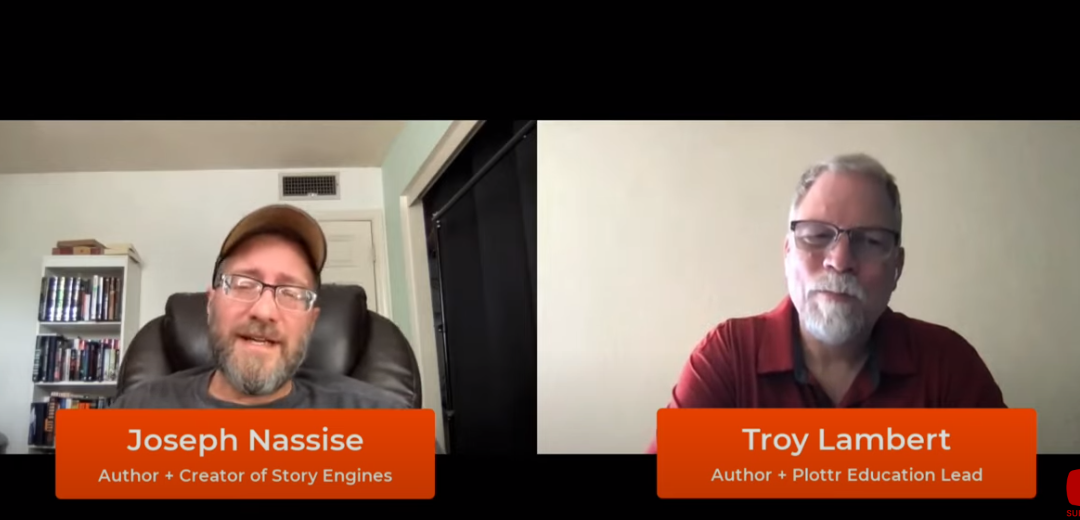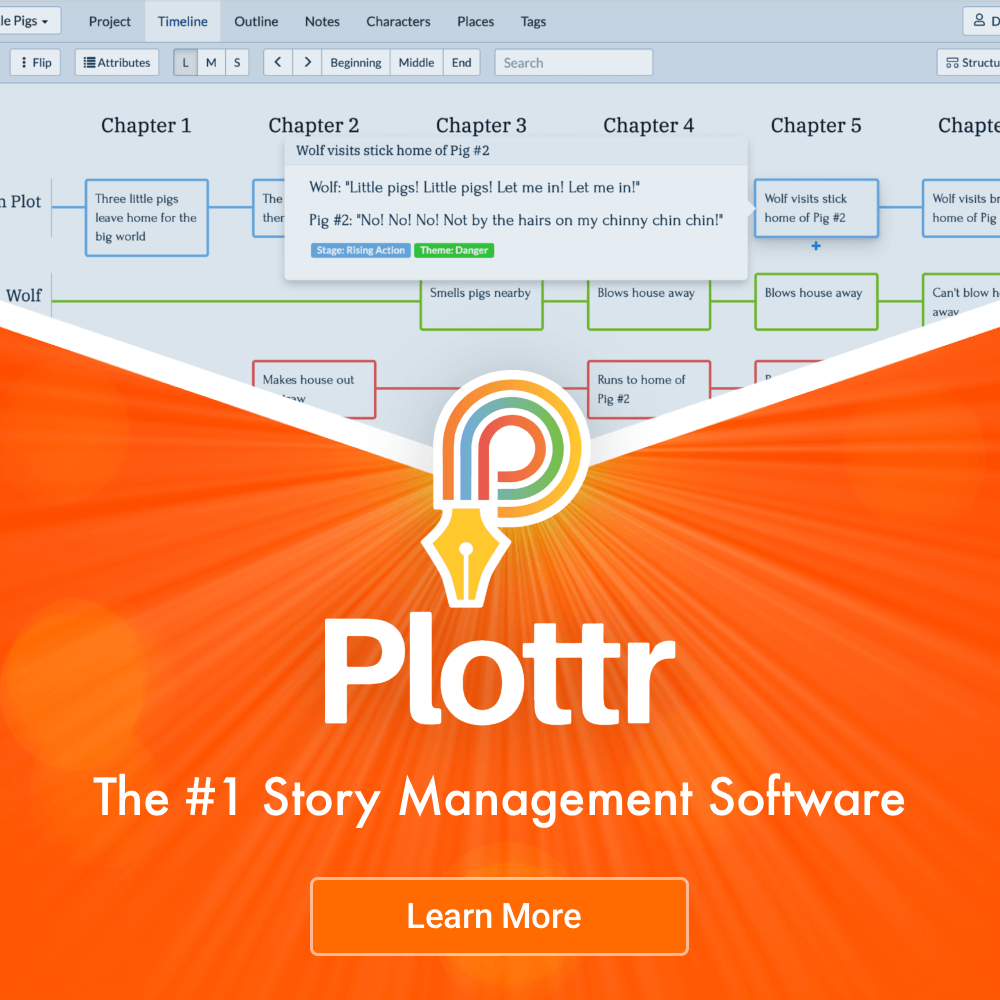By Sian Toop
In this episode, the Education Lead at Plottr, Troy Lambert, interviews bestselling fantasy author and story coach Joseph Nassise about Story Engines. Created by Nassise, Story Engines is ‘an intuitive four-act plot structure for writing commercial fiction’ and can be used for any genre – from sci-fi to young adult, horror to romance.
Nassise discusses that while going through a period of struggling to get his work published, he began to ‘sit back and review all the stories’ that he ‘truly loved’ and, in particular, how they were ‘put together’, in terms of structure. Realising that the problem with his own unpublished work was, in fact, the structure, he goes on to state that once that was fixed, he began to sell work again.
The Story Engines template is split into four phases: Preparation, Reactive, Proactive, and Conclusion. Nassise discusses that what is important regarding these phases is ‘the order you place them in and the bridges that connect them’ or what he refers to as ‘game-changing moments’ or the ‘elements that push the reader deeper into the story’.
Breaking down the phases further, Nassise explains that the Preparation Phase is for ‘preparing the reader for everything that’s’ going to come’ and introducing elements such as characters and setting. The reactive phase is where the protagonist reacts after the first game-changing moment. Nassise states this is usually an emotional reaction, causing the character to ask ‘how and why’ that moment happened to them. Bridged by a second game-changing moment, following that is the proactive phase – where the protagonist needs to become ‘active’ in dealing with whatever obstacle has been placed in their path. Finally, we reach the conclusion phase after a third and final game-changing moment. This phase is where your protagonist (hopefully) succeeds, and the story concludes.
This fantastic episode focuses on using Story Engines to inspire any author who has ever struggled to plot their story. As he explains each phase or moment, Nassise gives many great tips on making them count towards your overall story, explaining in depth what your characters should be doing at each plot stage.
If you have found yourself struggling to plot your story, Story Engines may be just what you need!
You can sign up for Plottr using the link below!







